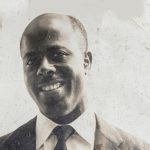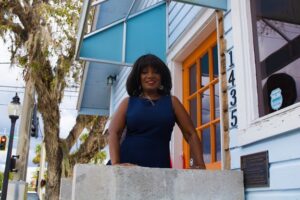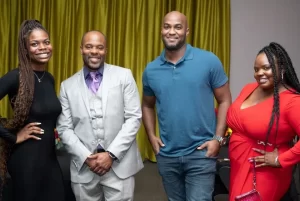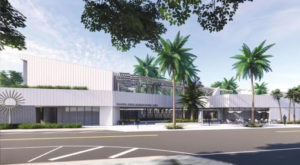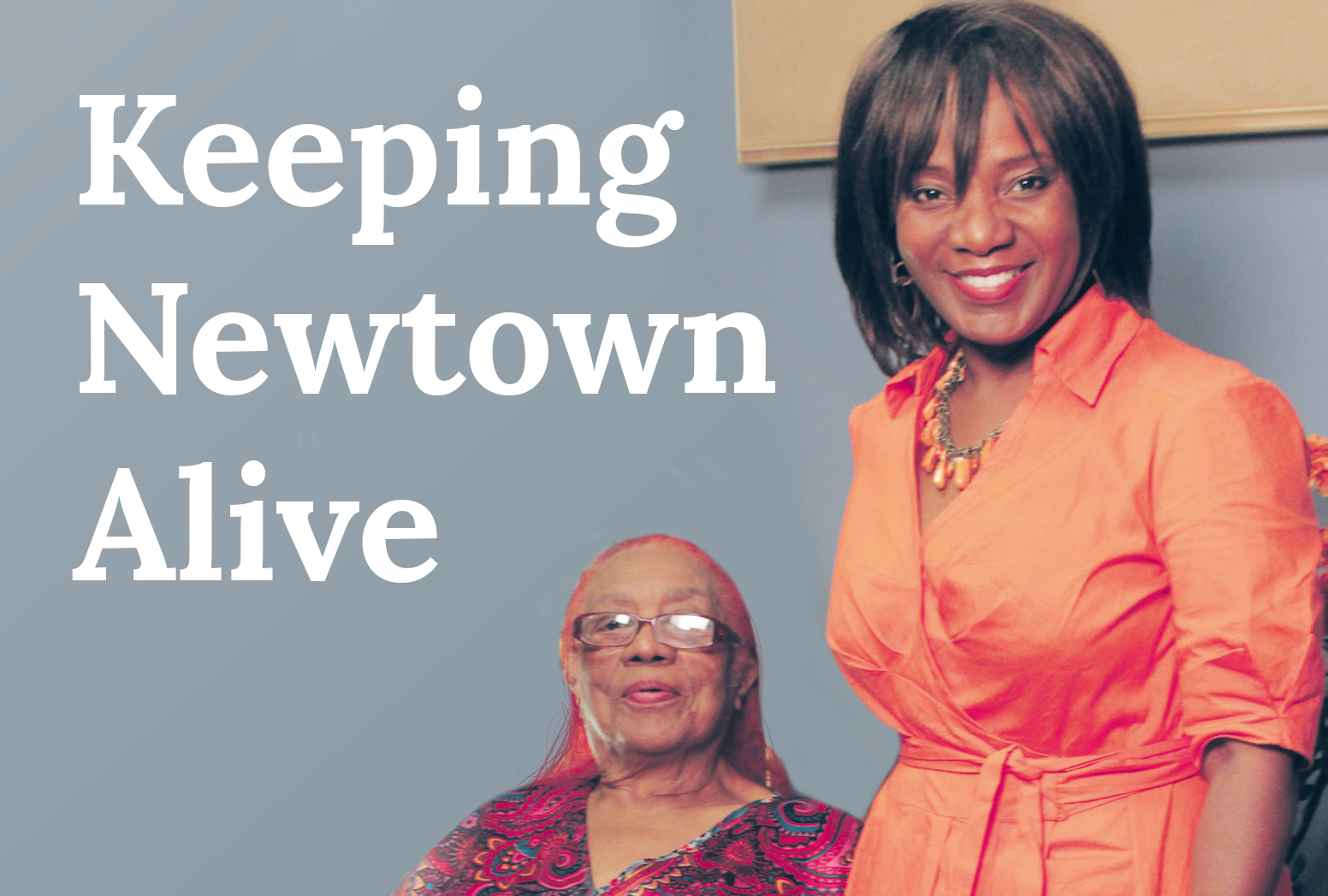
Pictured above: Fannie McDugle after her oral history interview with Vickie Oldham. Newtown Conservation Historic District Project strives to preserve and celebrate legendary African-American community in Sarasota.
By Amanda Smith
Black History Month is, above all, a celebration of the massive achievements by African Americans – and a recognition of the central role they played in U.S. history. The only catch with history is, if you don’t preserve it, there’s no celebrating it – or learning from its perils and successes.
That was exactly the pitch passionate Sarasota residents made to their local government, leading to a $50,000 city-funded initiative – The Newtown Conservation Historic District Project – dedicated to highlighting the history of an African- American enclave in Sarasota with beginnings dating back an entire century.
Newtown’s beginnings can be traced back to 1914, when it evolved out of the growth of Sarasota’s oldest African-American community, the Rosemary District. From the early years through the 1940s, the street now known as Dr. Martin Luther King, Jr. Way was the flourishing heart of the then segregated Newtown, but decades of disinvestment and capital flight – along with a concentration of government subsidized housing – have devastated the area, causing the slow, painful demise of the once-thriving Newtown community.
Rather than watching its memories disappear right along with it, a team of mostly volunteers re executing a protective homage, conducting intricate research and personal interviews to piece together a comprehensive account of Newtown’s rich history. Members of the research team include an architectural historian, an ethno-historian, retired professor and cultural anthropologist Rosalind Howard, as well as Sarasota native, historian and project manager Vickie Oldham. The completed project will produce a report documenting Newtown’s 100 years of history and culture, oral history recordings from residents, a map of district boundaries and a walking tour of Newtown.
The passionate leader who many believe has been the project’s visionary and its fire, Oldham says next to mentoring young people, this is the most important work of her career. “This is truly my legacy,” she says. “Up until now, Newtown’s history has only been available in fragments – a local art gallery had some history, you could learn a little at a cultural resource center – there’s really no single repository of primary and secondary source accounts in one cohesive document – until now. It’s huge and it’s history in the making. I’m a native and a lover of history, and now I get to use every communications tool available to share the history of Newtown in a project that will long outlive me.” With big plans to create monuments, a website and a mobile app that can be used to hear oral accounts of Newtown seniors Oldham interviewed, she says the ultimate goal of the The Newtown Conservation Historic District Project is to share the strong values of courage, determination, self-sufficiency and commitment to community demonstrated by the residents of a segregated section of Sarasota without access to most of the resources of the larger city. “I interviewed about 40 Newtown residents and pioneers, and it was transformative to see how close-knit they all were,” Oldham reveals. “I had long-known Newtown operated under a village concept in order to make the best use of the limited resource access they had, but I never fully understood the potency of their treasured values. Experiencing the histor ymyself, sitting within inches of
the people who lived it, taught me the unrivaled power of individual personal stories to demonstrate the sacrifice, strength and spirit required to live for something greater than oneself. Honestly, it made me want to be a better person.” Retired University of Central Florida professor and cultural anthropologist Rosalind Howard explains that the pride Newtown’s older generation feels in sharing their stories stems from how demonstrative they are in revealing Newtown’s strong moral values and ethics to present-day Americans. “As I compile the interviews collected by Vickie, the common theme is the pride interviewees feel in sharing their stories of enduring the struggles of segregation, courageously starting their own businesses to build a self-sufficient community, and fearlessly fighting for civil rights,” Howard says.
“Many of them actually admit to desiring a return of those village values of community cohesion, strong religious values, shared ideologies and a work ethic and motivation sourced from an emotional desire to honor the unity of Newtown.” From former community hairdressers, to Newtown migrants like the ever-outspoken Jesse Johnson who, at his mother’s insistence, left Georgia for Sarasota to avoid being lynched, citizens of Newtown remember feeling a strong sense of unified identity and the power to move mountains together.
“It was definitely an ‘us against the world’ mentality – and that’s because it was,” Howard states. “They were fighting for their rights, they were fighting just to survive. Banding together like that has a powerful effect on the psyche and allows for people to do tremendous things.” That hard work and dedication – and its resulting accomplishments – are exactly what Howard sees as the greater message the Newtown Conservation Historic Project has a chance to impart. “Overwhelmingly, my assessment of the interviews is that participants want to convey the presence and the power of communal values and morality,” Howard says. “In contemporary society, there is a very prevalent conception of African-Americans as lazy, jobless welfare abusers with no work ethic or motivation. By documenting the ingenuity and achievements of enclaves like Newtown – feats accomplished by intrinsic motivation, pride and political involvement – we as a country are forced to rewrite the story.” Howard doesn’t expect a Newtown revival, but rather a reconstruction of the perception. “This idea that there is a history that has been untold may help facilitate a subtle shift in the perceived values of African Americans as a whole,” Howard hopes. “It will not only change how others see us, and how the history books see us, but perhaps it will change how we see ourselves.”
Sarasota’s Newtown Conservation Historic Project should be completed by Summer 2016. Find them on Facebook at Newtown Conservation Historic District and follow them on Twitter @newtown_dream.

